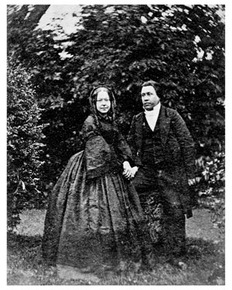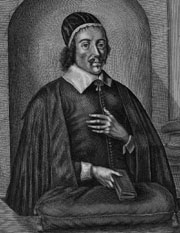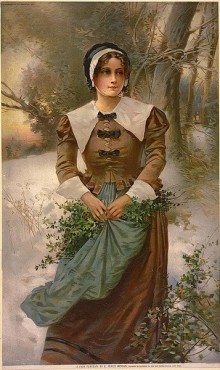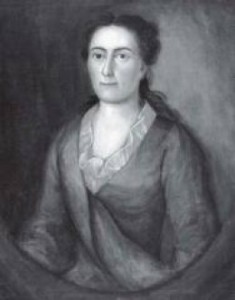If I were to pick any Baptist preacher in Church history whom I’d like to meet, the beloved “Prince of Preachers” Charles Spurgeon would be amongst the top of my list. I was often blessed upon reading his sermons, for he has a way with words that can encourage the soul. He provides concrete examples with which his layman audience could easily understand. His diction and delivery are inspirational; they enhance the beauty and force of his message. After reading Spurgeon: A New Biography by Arnold Dallimore, I’ve come to appreciate also his character, wit, and humor, for Spurgeon showed with his ready humor how it is possible for the highest spirituality to be exemplified in the cheeriest character. His wit is as abundant as his wisdom.
Some favorite sayings and writings of Spurgeon which I find rather memorable (some are funny, and others edifying)…
On criticism:
Spurgeon was well-known as a cigar smoker, mostly for medicinal reasons as he faced certain health problems in his life. He didn’t view cigar smoking as intrinsically wrong, if not in excess, and said he would quit if he finds himself smoking too much. One time someone, who was particularly critical of Spurgeon, asked him how much is “too much”; to which Spurgeon replied, “Two at a time, of course.” 🙂
On head of family:
One time, in speaking to a couple getting married, he encouraged that they would both be “dearly-beloved” not only at the beginning of their marriage, but all through the end; and that, while their sorrows would be mutually shared, their joys would all be multiplied. Referring to Ephesians 5:23, he addressed the bride and said:
“According to the teaching of the apostle, ‘The husband is the head of the wife.’ Don’t you try to be the head; but you be the neck, then you can turn the head whichever way you like.”
On his age:
Spurgeon had incredible oratory skills. On his first effort at preaching in the pulpit, an elderly woman, who was enthusiastic of his preaching, cried out, “Bless your heart, how old are you?” He replied that there should not be interruption in the service. After the last hymn was sung she asked the same question again. He replied, “I am under sixty.” “Yes, and under sixteen!” the lady replied. The congregation asked him to come and preach to them again as soon as possible.
On the truly Christian marriage:
From his sermon titled “The Saint One With His Savior” in which he beautifully describes a happy marriage and the true wife, all the while describing his beloved wife Susannah:
Sometimes we have seen a model marriage, founded on pure love, and cemented in mutual esteem. Therein, the husband acts as a tender head; and the wife, as a true spouse, realizes the model marriage-relation, and sets forth what our oneness with the Lord ought to be. She delights in her husband, in his person, his character, his affection; to her, he is not only the chief and foremost of mankind, but in her eyes he is all-in-all; her heart’s love belongs to him, and to him only. She finds sweetest content and solace in his company, his fellowship, his fondness; he is her little world, her Paradise, her choice treasure. At any time, she would gladly lay aside her own pleasure to find it doubled in gratifying him. She is glad to sink her individuality in his. She seeks no renown for herself; his honor is reflected upon her, and she rejoices in it. She would defend his name with her dying breath; safe enough is he where she can speak for him. The domestic circle is her kingdom; that she may there create happiness and comfort, is her lifework; and his smiling gratitude is all the reward she seeks. Even in her dress, she thinks of him; without constraint she consults his taste and considers nothing beautiful which is distasteful to him.
A tear from his eye, because of any unkindness on her part, would grievously torment her. She asks not how her behavior may please a stranger, or how another’s judgment may approve her conduct; let her beloved be content, and she is glad. He has many objects in life, some of which she does not quite understand; but she believes in them all, and anything she can do to promote them, she delights to perform. He lavishes love on her, and, in return, she lavishes love on him. Their object in life is common. There are points where their affections so intimately unite that none could tell which is first and which is second. To watch their children growing up in health and strength, to see them holding posts of usefulness and honor, is their mutual concern; in this and other matters, they are fully one. Their wishes blend, their hearts are indivisible. By degrees, they come to think very much the same thoughts. Intimate association creates conformity; I have known this to become so complete that, at the same moment, the same utterance has leaped to both their lips.
Happy woman and happy man! If heaven be found on earth, they have it! At last the two are so welded, so engrafted on one stem, that their old age presents a lovely attachment, a common sympathy, by which its infirmities are greatly alleviated, and its burdens are transformed into fresh bonds of love. So happy a union of will, sentiment, thought, and heart exists between them, that the two streams of their life have washed away the dividing bank, and run on as one broad current of united existence, until their common joy falls into the main ocean of felicity.
On agnosticism:
A gentleman said to Spurgeon, “Ah! Mr. Spurgeon, I don’t agree with you about religion; I am an agnostic.” Spurgeon replied, “Yes! That is a Greek word, and the exact equivalent is ignoramus; if you like to claim that title, you are quite welcome to.”
On God’s providence:
From Spurgeon’s Evening by Evening; Or, Readings at Eventide for the Family or the Closet (p. 318):
Believer, if your inheritance be a lowly one, you should be satisfied with your earthly portion; for you may rest assured that it is the fittest for you. Unerring wisdom ordained your lot, and selected for you the safest and best condition. A ship of large tonnage is to be brought up the river; now, in one part of the stream there is sand-bank; should some one ask, “Why does the captain steer through the deep part of the channel, and deviate so much from a straight line?” his answer would be, “Because I should not get my vessel into harbor at all if I did not keep to the deep channel.” So, it may be, you would run aground and suffer shipwreck, if your divine Captain did not steer you into the depths of affliction, where waves of trouble follow each other in quick succession. Some plants die if they have too much sunshine. It may be that you are planted where you get but little; you are put there by the loving Husbandman, because only in that situation will you bring forth fruit unto perfection. Remember this: had any other condition been better for you than the one in which you are, divine love would have put you there. You are placed by God in the most suitable circumstances, and if you had the choosing of your lot, you would soon cry, “Lord, choose my inheritance for me, for by my self-will I am pierced through with many sorrows.” Be content with such things as you have, since the Lord has ordered all things for your good. Take up your own daily cross; it is the burden best suited for your shoulder, and will prove most effective to make you perfect in every good word and work to the glory of God. Down, busy self and proud impatience; it is not for you to choose, but for the Lord of Love!





